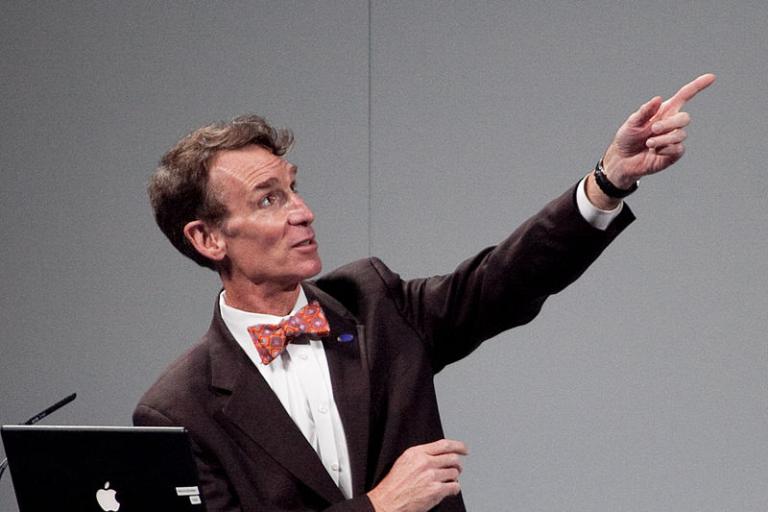
I do confess to a visceral and life-long dislike of bow ties. I can’t see why people who wear them don’t just go whole hog and put on a red clown nose, as well. But none of that plays any role in my lack of enthusiasm for Bill Nye.
I found Anthony Standen’s Science is a Sacred Cow (1950) in the San Gabriel High School library and I read it when I was a teenager. I’ve never forgotten it.
Anthony Standen (1906-1993), born to an American mother and a British father, received his education at the University of Oxford, the Massachusetts Institute of Technology (MIT), and the University of New Hampshire. He went on to become a respected scientist, focusing on both chemistry and entomology.
In Science is a Sacred Cow, Standen expressed his view that scientists and scientific theories should be treated with the same skepticism and subjected to the same scrutiny that the claims of people in other professions face.
Here are a couple of passages from the book:
[Certain students] suppose that because science has penetrated the structure of the atom it can solve all the problems of the universe. . . . They are known in every . . . college as the most insufferable, cocksure know-it-alls. If you want to talk to them about poetry, they are likely to reply that the “emotive response” to poetry is only a conditioned reflex. . . . If they go on to be professional scientists, their sharp corners are rubbed down, but they undergo no fundamental change. They most decidedly are not set apart from the others by their intellectual integrity and faith, and their patient humility in front of the facts of nature. They are . . . uneducated, in the fullest sense of the word, and they certainly are no advertisement for the claims of science teachers. (Science is a Sacred Cow, 18-19)










